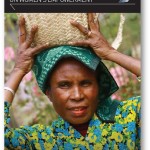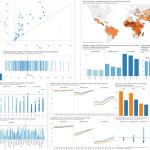A training program on Researching Gender and Agriculture is being held in Nairobi over 2016. Applications are due at the end of February. Participants are responsible for all costs. See the flyer for more information: Researching Gender and Agriculture pdf
Understanding Women and Migration: A Literature Review
Global Knowledge Partnership on Migration and Development (KNOMAD) and Development Indicators Group (DECIG) cordially invite you to a seminar Understanding Women and Migration: A Literature Review Tuesday, February 9, 2016 12:30 – 2:00 PM Venue: MC C1-100 Speaker: Anjali Fleury, Consultant, World Bank Group Chairs: Benedicte de la Briere, Lead Economist, Gender, World Bank Group David W. Yang, Deputy Assistant Administrator, USAID Discussants: >> Read more
Call for papers: Migration, gender and agrarian change in the Global South
The International Water Management Institute has published a call for papers for a panel session on “Migration, gender and agrarian change in the Global South” at the Royal Geographical Society (RGS) conference from August 31st to September 2nd in London. Abstract: There are an estimated 214 million international labour migrants and 740 million internal labour migrants worldwide. The >> Read more
Digitizing Financial Solutions to Advance Women’s Economic Participation
View event details here. Presenter(s): Dr. Ruth Goodwin-Groen, Better Than Cash Alliance, and Dr. Leora Klapper, The World Bank Date: February 4, 2016 - 9:00am - 10:30am We recognize that greater participation by women in national economies can drive economic growth and stability, but how do we increase this participation? Digital financial services present an innovative way to improve women's >> Read more
The World’s Women 2015: Trends and Statistics
At the 1995 United Nations Fourth World Conference on Women, Governments adopted the Beijing Declaration and Platform for Action, which “seeks to promote and protect the full enjoyment of all human rights and the fundamental freedoms of all women throughout their life cycle.” Guided by these principles, the World’s Women 2015: Trends and Statistics presents the latest >> Read more
Webinar: Strengthening women’s rights in land governance: Experiences from Tanzania
IIED will be hosting a webinar on ‘Strengthening women’s rights in land governance: experiences from Tanzania’, as part of their Legal tools for citizen empowerment initiative. Speakers include: Helen Dancer, Barrister and Senior Lecturer at the University of Brighton and Naseku Kisambu, Director of programmes at the Tanzania Women Lawyer Association (TAWLA). Why should you >> Read more
New publication: Accessing Justice: Models, Strategies & Best Practices on Women’s Empowerment
Direct Link to Full 74-Page IDLO Publication Link to 12-Page Report Summary By Irene Khan, Director-General IDLO Far too often, in far too many countries, women cannot find justice. They are denied the very essence of the rule of law — that we are all equal, and equally protected by the law. Gender equality is >> Read more
Launch of new World Bank Gender Data Portal
The World Bank Group relaunched its popular Gender Data Portal, comprising current and historical data on topics ranging from health and education to jobs, assets, and political participation—all broken down by sex. The Bank Group is also launching its Little Data Book on Gender 2016 alongside new online tables—to be updated quarterly—linked to the latest World Development Indicators, making it easier than ever >> Read more
Best Practices and Lessons Learned for Supporting Women’s Land Rights
From 25 January to 5 February, the Land Portal Foundation will be holding a debate on the Global Land Tool Network’s Gender Evaluation Criteria (GEC), which were created to assess the effectiveness of land tools in supporting women’s land rights. The discussion will focus on sharing best practices and lessons learned for supporting women’s land rights. >> Read more
Empowerment matters: “Invisible Women” in Niger produce less food
Fleur Wouterse has a new blog published on Agrilinks discussing recent research using the WEAI in Niger. Her takeaway messages include: Empowerment matters for agricultural production. Less empowered households experience lower returns to their labor and use their traction equipment and animals in a less effective manner. Women are much less empowered in so-called dual households where >> Read more
- « Previous Page
- 1
- …
- 3
- 4
- 5
- 6
- 7
- …
- 74
- Next Page »


